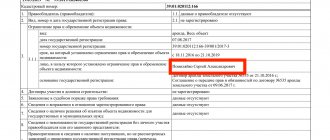A notary is engaged in the opening and management of inheritance business. By law, heirs are required to declare their rights to the testator's property within six months after his death. If this period is missed, the successor loses the opportunity to receive the inheritance. You can restore your rights only through the court and only if there are compelling reasons for skipping.
As practice shows, failure to contact a notary in a timely manner is a problem for many heirs. At the time of the death of a relative, someone was on a long business trip abroad, someone was misled by other successors in order to deprive them of an inheritance, etc. Below we will consider whether the notary himself is obliged to search for heirs, because the fate of the bequeathed property largely depends on his actions.
Why do you need to look for heirs?
The notary is obliged to open an inheritance case immediately after receiving information about the death of a citizen. This process starts after one of the heirs of the deceased contacts the notary office. The latter must provide a death certificate and/or testamentary disposition of the deceased.
From the moment the inheritance case is opened, the following consequences arise:
- all applicants are given a six-month period to enter into inheritance rights;
- if there is a will, the property is transferred only to those persons who are listed in the text of the document (if the deceased has obligatory heirs, then they receive parts of the property in accordance with the law);
- if there is no will, then the property is distributed according to the law (the closest relatives receive the property in equal shares).
Not only close relatives, but also distant relatives can apply for inheritance. It should be understood that if the deceased does not have a first line of kinship, then the inheritance will be passed on to representatives of the second line, and so on. Therefore, a distant relative can also inherit property if there are no other claimants.
The inheritance is distributed only among those persons who submitted applications to the notary. Therefore, the size of the shares directly depends on the number of heirs. If the applicant did not manage to submit documents within the established period, then he can restore it if there are good reasons.
But should a notary search for heirs? The law does not oblige him to such actions. In addition, the notary is not interested in finding heirs, because in their absence, the property of the deceased will automatically go to the state. Accordingly, the inheritance case will be closed in any case.
The indirect interest of the notary is caused by the payment of the state fee when issuing the certificate. But most specialists have enough work to do, and therefore there is no point in searching for clients on their own.
Is a notary required to look for heirs?
To consider this issue in more detail, it is necessary to pay attention to the powers of a notary when opening an inheritance case. They are enshrined in Article 61 of Law No. 4462-1. These are the following responsibilities:
- Having received a message about the death of the testator, the specialist is obliged to notify all applicants for the inheritance known to him;
- the law does not provide for the notary’s obligation to establish the existence of other heirs, and therefore the specialist is not obliged to take action to search for them;
- at his discretion, the notary can search for successors by posting messages in the media and other sources.
To open an inheritance case, the notary must obtain documentary evidence of the death of the testator. In some cases, the process can be initiated based on an oral request from interested parties who were unable to obtain a supporting document from the registry office.
The notary is obliged to notify the successor about the death of the testator only if he has reliable information about his residence address and place of work. A specialist can obtain this information in one of the following ways:
- from citizens who declared the death of the testator (the notary should ask whether the deceased has close and distant relatives and obtain their contact information);
- from the contents of the will, in which the deceased must have indicated heirs;
- as a result of sending requests for a list of assets of the deceased (from the Unified State Register of Real Estate you can find out information about the persons who acquired the object as shared ownership or participated in its privatization).
If the notary has information about the place of residence or work of the heirs, he must send them written notices. The notary's duty to find heirs ends here. However, the fulfillment of this obligation is not controlled in any way. In addition, the regulations do not contain any clarifying information regarding verification of data on the place of work and addresses of potential successors.
Let's say the notary was able to independently determine the circle of heirs and sent them notifications. Further events may develop as follows:
- Having received notice of the opening of an inheritance case, the interested person can contact the notary's office to obtain a certificate. To do this, he has 6 months from the date of death of the testator.
- It is possible to change the procedure for entering into inheritance rights. For example, thanks to active actions, the notary was able to identify additional candidates. If they belong to the first priority or are obligatory heirs, then the situation with the distribution of the inheritance mass may change radically.
- If a citizen received the notice too late and did not have time to issue the certificate within the prescribed period, he can obtain justice through the court. In this case, either a redistribution of the inheritance occurs, or payment of monetary compensation to the newly-minted heir by persons who have already entered into the inheritance.
- If a person does not want to take part in the division of the deceased’s property, he can issue an official refusal or take no action. After the expiration of the six-month period, he will be automatically excluded from the list of applicants.
Each participant in the inheritance process has the right to familiarize himself with the case materials. We are talking about the number of heirs, the list of objects included in the inheritance mass and the features of the distribution of shares. Thus, each beneficiary will be able to ensure the transparency of the procedure.
Regarding the data obtained, interested parties have the opportunity to go to court. A citizen may have the following reasons for this:
- contesting a will;
- recognition of some heirs as unworthy;
- provide information about new applicants;
- extend the time period for entering into inheritance rights.
You can receive an inheritance only through a notary. The specialist issues a certificate on the basis of which the successor can take over the property of the deceased relative. If the deadline for submitting documents was missed, then you can achieve justice through the court. However, the lack of notification from the notary is not a compelling argument for extending the deadline.
What will happen to the inheritance if relatives could not be found?
The notary should not look for heirs on his own, so if potential candidates for the property of a deceased citizen do not apply for registration of property (inheritance) in a timely manner, they may lose it altogether.
Each applicant is given exactly six months to enter into inheritance. This period is quite enough to register movable and immovable property in your name. In some cases, if a person did not know about the death of a relative, he may request that the period be extended.
In such a situation, the potential heir will have more time to formalize the inheritance. If no one applies for registration of the property of the deceased citizen within six months, then the inheritance becomes escheat and goes to the state. It will be impossible to return it in the future.
You need to remember this. Due to various life circumstances, it is not always possible to find a close relative of the deceased, so it is recommended to maintain relationships and communication with family and friends. This will allow you to be aware of the main life events of your loved ones.
After the expiration of the six-month period given for registering the property of the deceased, the heirs can still file a claim, indicating:
- right to inheritance;
- the reason for untimely treatment in the distribution of property;
- inherited property and its total value;
- list of remaining heirs.
Relatives can file a petition to suspend the inheritance case. If the court decides positively, the heirs can receive their share of the inheritance, even if it has already been declared escheat.
Legal experts recommend contacting notaries in a timely manner after the death of a close relative, so as not to miss your chance to inherit an apartment, car or private house. After all, if there are no heirs, the property is considered escheated and goes to the state.
It should also be noted that if at the time of the legal heir’s application the property has already been sold, then the potential candidate for the property of the deceased will receive a refund in the form of a sum of money. Its volume will be equal to the sale price of the inheritance due
In any case, you should not delay the process of contacting a notary office. The sooner a person enters into an inheritance, the less he will have to worry about the fact that he may not have time to register the property of the deceased.
USEFUL INFORMATION: Is alimony taken from business trips and from what amount are deductions made?
Ways to find applicants for inheritance
Unfortunately, information about the addresses and places of employment of potential heirs is not always available. In such cases, the notary uses the following methods to search for heirs:
- placing a public announcement upon the opening of an inheritance case (this is done if none of the heirs has declared their rights and there is no will);
- the notice is published in newspapers, radio and television;
- the advertisement is posted on social networks and websites;
- Official requests are sent to Rosreestr, migration service, traffic police, Ministry of Internal Affairs, etc.
The powers of a notary do not allow him to initiate search activities. He also cannot insist that the relatives of the deceased hire search specialists. These activities can be carried out by heirs at their own request in order to obtain information about the inheritance mass and search for other interested parties.
The regulations do not indicate orders regarding the search for applicants for inheritance. If such events are carried out, then in no case should they violate the law regarding privacy and personal data.
What is the procedure for searching for heirs?
The notary chooses the method of informing known heirs independently. As a rule, letters are sent by mail with a request to visit the office to write an application for acceptance of the inheritance or refusal of it.
USEFUL INFORMATION: Is it possible to write off alimony debt if the payer is bankrupt?
According to Article 61 of the Fundamentals, publication in the media or public notice is also allowed, although in practice this method of information is used extremely rarely.
In many ways, the method that the notary chooses to inform will depend on the completeness of the information that he has about a particular heir.
What will happen, or will none of the heirs contact the notary?
Perhaps a person had only one heir, and he adopted him after the fact. In this case, such an heir may not contact the notary at all. However, this is fraught with some difficulties in the future. Without a title document for inheritance, it will be impossible to re-register real estate or transport in your name. If you miss the six-month deadline, then you will have to go to court to confirm the fact of the actual acceptance of the inheritance by a court decision.
There are cases when a person has no heirs in principle, or all of them were declared unworthy or refused the inheritance.
In this case, the inherited property is recognized as escheated and becomes the property of the municipality (real estate) and the Russian Federation (other property).
When property has passed into state or municipal ownership, it is possible that some heirs may appear who previously did not know that the testator had died. It will be possible to reclaim the property only in court.
This process is not easy, and it is unlikely to be possible without qualified legal support.
Information from the property search law
Today, the powers of notaries have expanded. Since 2021, they are required to send requests about the composition of the testator’s property at his place of residence.
To identify the assets of the deceased, a specialist is allowed to take the following actions:
- send requests to banks to obtain account information;
- obtaining data on real estate in Rosreestr;
- The traffic police can provide information about the personal transport of the deceased.
Title documentation can be obtained from relatives of the deceased. If it is missing, then a search is performed in the registers using the full name of the deceased, his residential address and passport details. In addition to the notary, the heirs themselves can also search for an inheritance. To do this, they are allowed to contact various government agencies, submit advertisements, and interview relatives and friends of the deceased.
Sometimes the property and financial assets of the deceased are identified six months after his death. In this case, it is possible to restore the period for issuing inheritance certificates.









